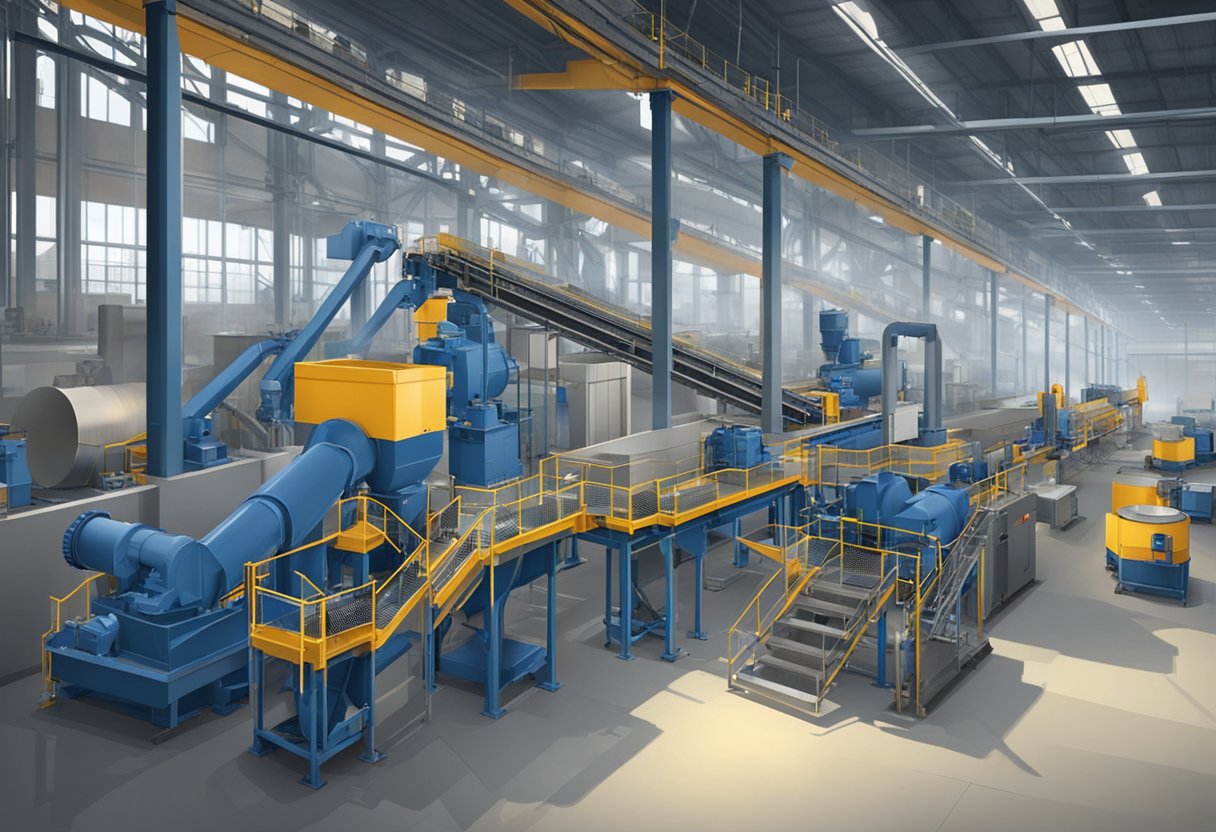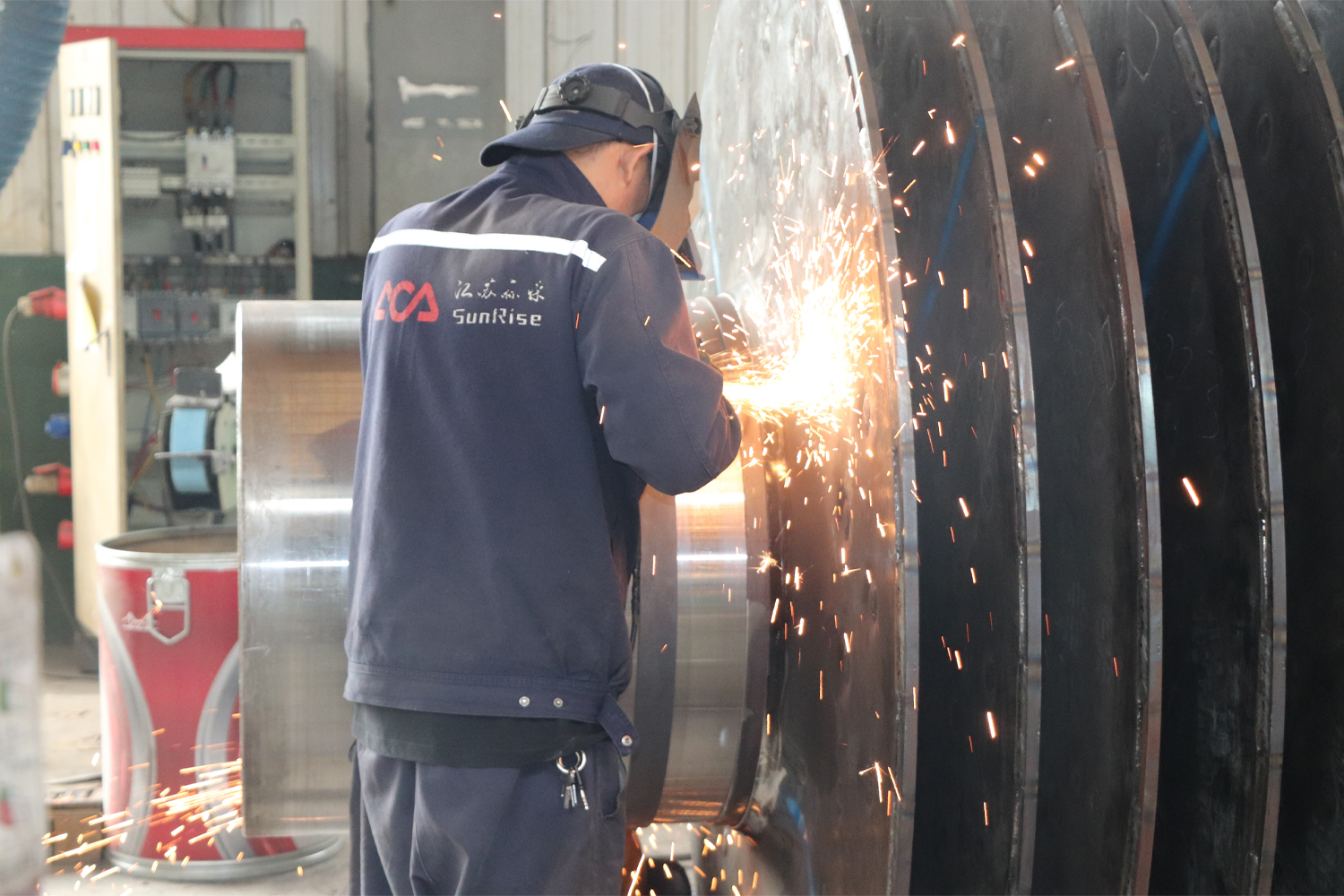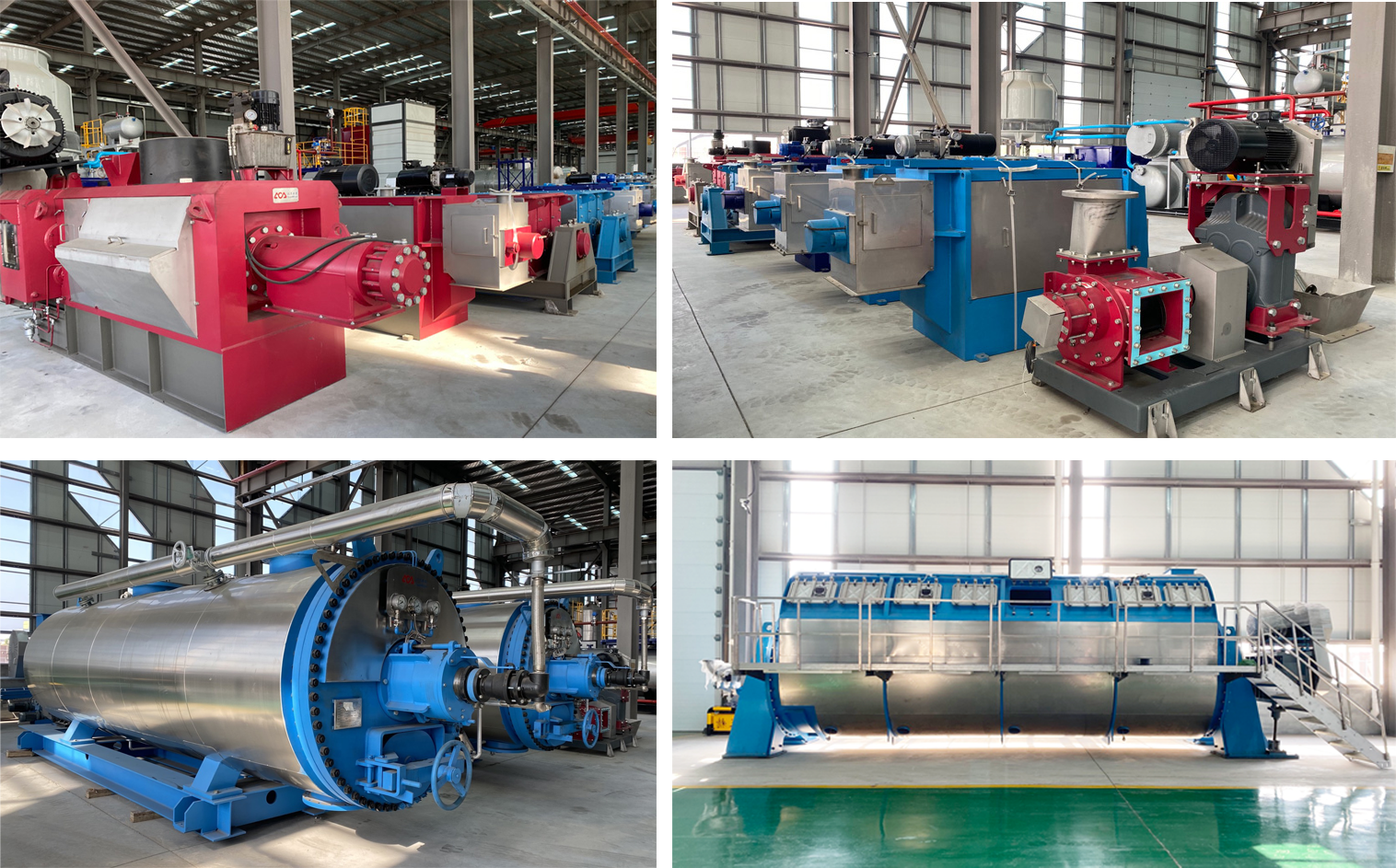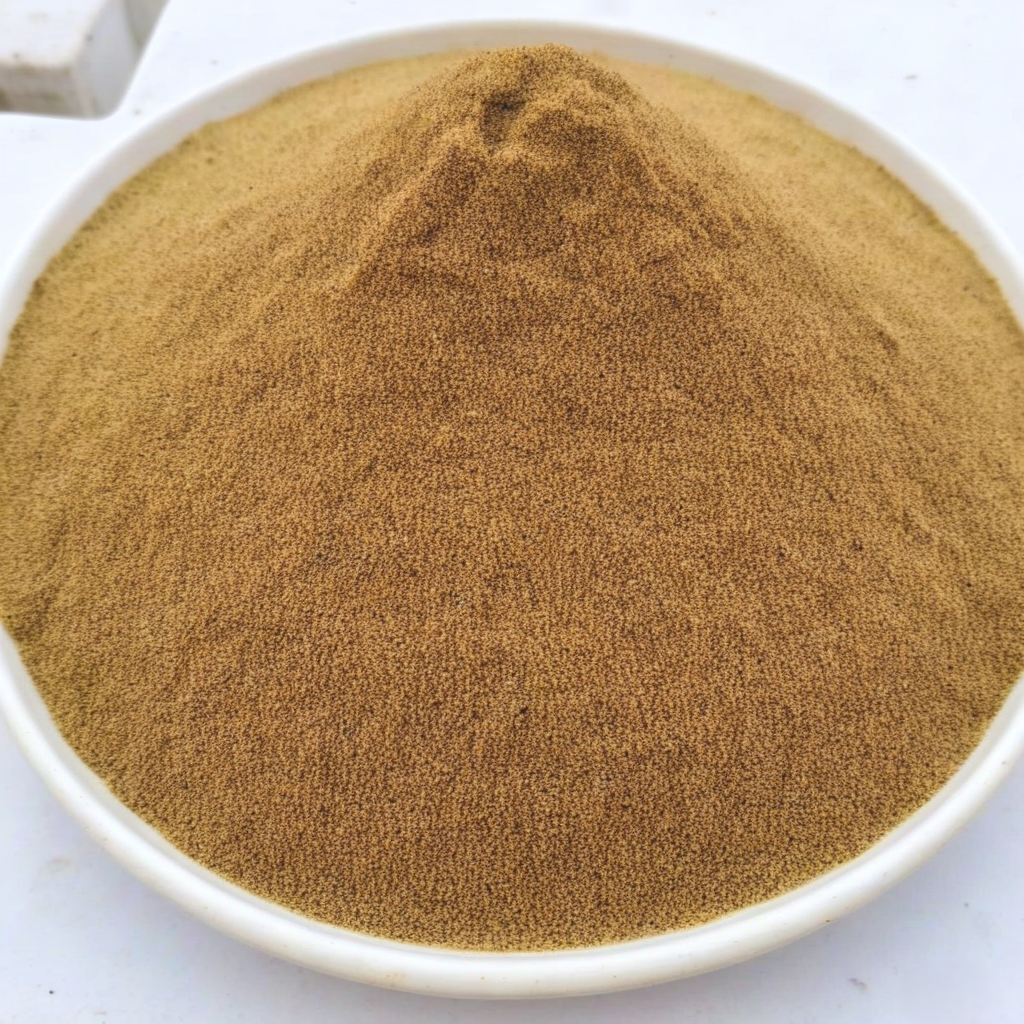
Screw Conveyor Manufacturers Near Me: Finding the Best Local Options
Screw Conveyor Manufacturers Near Me: Finding the Best Local Options
Screw conveyors are an essential component in various industries, including agriculture, food processing, and mining. These machines are used to transport bulk materials, such as grain, fertilizer, and minerals, from one location to another. The design of screw conveyors allows for efficient and reliable material handling, making them a popular choice for manufacturers.

If you’re looking for screw conveyor manufacturers near you, there are several options available. Many companies specialize in designing and manufacturing screw conveyors for specific industries, such as agriculture or food processing. These manufacturers can provide customized solutions to meet the unique needs of your business.
When choosing a screw conveyor manufacturer, it’s important to consider factors such as experience, reputation, and customer service. A reliable manufacturer will have a proven track record of delivering high-quality products and excellent customer support. By doing your research and selecting a reputable manufacturer, you can ensure that your business has access to the best screw conveyor solutions available.
Understanding Screw Conveyors

Screw conveyors are mechanical devices used to transfer materials from one point to another within a production line or processing system. They are commonly used in the food, agriculture, mining, and chemical industries. A screw conveyor consists of a rotating helical screw blade, also known as an auger, which moves materials along the conveyor.
Types of Screw Conveyors
There are several types of screw conveyors, each designed for specific applications. Some of the most common types include:
- Horizontal screw conveyors: These conveyors are used to move materials horizontally, typically over short distances.
- Vertical screw conveyors: These conveyors are used to move materials vertically, typically over short distances.
- Inclined screw conveyors: These conveyors are used to move materials at an angle, typically between 15 and 45 degrees.
Components and Design
A screw conveyor consists of several components, including the screw blade, trough, motor, and bearings. The design of the screw conveyor will depend on factors such as the type of material being conveyed, the distance it needs to travel, and the required throughput.
Working Principle
The working principle of a screw conveyor is relatively simple. As the screw blade rotates, it moves materials along the conveyor. The materials are contained within the trough, which prevents them from spilling out. The speed of the screw blade can be adjusted to control the rate at which materials are moved along the conveyor.
Overall, screw conveyors are a reliable and efficient way to move materials within a production or processing system. By understanding the different types of screw conveyors, their components and design, and their working principle, it is possible to select the right conveyor for a specific application.
Selecting a Screw Conveyor Manufacturer

When selecting a screw conveyor manufacturer, there are several factors to consider to ensure that you get the best product for your needs. Here are some key factors to keep in mind:
Factors to Consider
- Quality: The quality of the screw conveyor is of utmost importance to ensure reliable and long-lasting performance. Look for a manufacturer that uses high-quality materials and has a reputation for producing durable and efficient screw conveyors.
- Experience: Choose a manufacturer with experience in designing and producing screw conveyors. An experienced manufacturer will have a better understanding of your needs and can offer customized solutions to meet your specific requirements.
- Customer Service: Good customer service is crucial when selecting a screw conveyor manufacturer. Look for a company that is responsive to your needs and can provide timely support and assistance.
- Price: While price is an important consideration, it should not be the only factor in your decision. Choose a manufacturer that offers a fair price for a high-quality product.
Customization Options
Every application is unique, and you may require a screw conveyor that is customized to your specific needs. Look for a manufacturer that offers a range of customization options, including:
- Material: The material of the screw conveyor can be tailored to your specific requirements. Stainless steel, carbon steel, and other materials are available.
- Size: Screw conveyors come in a range of sizes, and a good manufacturer will be able to customize the size to meet your needs.
- Configuration: Screw conveyors can be configured in a variety of ways, including horizontal, inclined, and vertical. Choose a manufacturer that can customize the configuration to meet your specific requirements.
By considering these factors and customization options, you can select a screw conveyor manufacturer that will provide a high-quality, customized product that meets your unique needs.
Benefits of Local Manufacturers

Local manufacturers have several benefits over distant manufacturers. In this section, we will explore two main benefits of choosing a local screw conveyor manufacturer.
Support and Maintenance
One of the main advantages of choosing a local screw conveyor manufacturer is the ease of support and maintenance. Local manufacturers are easily accessible, and their support and maintenance teams can respond quickly to any issues that may arise. This means that any problems with the screw conveyor can be resolved quickly, minimizing downtime and reducing the impact on productivity.
In addition, local manufacturers are more familiar with the local environment and the specific needs of the industry. This means that they can provide tailored support and maintenance services that are better suited to the needs of the local industry. This can result in more efficient and effective support and maintenance, which can ultimately save time and money.
Quick Delivery Times
Another benefit of choosing a local screw conveyor manufacturer is the quick delivery times. Local manufacturers are able to deliver their products quickly and efficiently, reducing the lead time between ordering and delivery. This can be particularly important for industries that require fast and reliable delivery of screw conveyors to keep their operations running smoothly.
In addition, local manufacturers are often better equipped to handle rush orders and urgent requests. This means that they can provide a faster turnaround time for urgent orders, which can be critical in certain situations.
Overall, choosing a local screw conveyor manufacturer can provide several benefits, including faster support and maintenance, quicker delivery times, and tailored services that are better suited to the needs of the local industry.
Comparing Manufacturers
When searching for screw conveyor manufacturers near you, it’s important to compare different companies to find the best option for your needs. Here are some key factors to consider when comparing manufacturers:
Quality and Reliability
One of the most important factors to consider when comparing screw conveyor manufacturers is the quality and reliability of their products. Look for manufacturers that use high-quality materials and have a reputation for producing durable, long-lasting equipment. You may also want to consider whether the manufacturer offers customization options to ensure that the conveyor meets your specific needs.
Cost and Value
Another important factor to consider is the cost and value of the conveyor. While you don’t want to sacrifice quality for a lower price, it’s important to find a manufacturer that offers competitive pricing. Consider factors such as warranties, maintenance and repair services, and the overall value of the product to determine whether a particular manufacturer is the best choice for you.
Overall, when comparing screw conveyor manufacturers, it’s important to consider both the quality and reliability of the product as well as the cost and value. By doing your research and carefully evaluating different manufacturers, you can find the best option for your specific needs.
Certifications and Standards
Industry Compliance
Screw conveyor manufacturers must comply with various industry standards and regulations to ensure the safety and quality of their products. These standards include the American Society of Mechanical Engineers (ASME) standards, which cover design, construction, and testing of screw conveyors. Additionally, the Conveyor Equipment Manufacturers Association (CEMA) provides guidelines for the design, construction, and installation of screw conveyors.
Safety and Quality Certifications
Many screw conveyor manufacturers have obtained certifications to ensure the safety and quality of their products. One such certification is the ISO 9001:2015, which sets standards for quality management systems. This certification ensures that the manufacturer has a well-documented quality management system in place to ensure consistent product quality.
Another certification is the Underwriters Laboratories (UL) certification, which ensures that the manufacturer’s products meet safety standards. This certification covers electrical and mechanical safety of the screw conveyor.
In addition to these certifications, some manufacturers may also have certifications specific to their industry or product, such as the Food and Drug Administration (FDA) certification for screw conveyors used in the food industry.
Overall, it is important for screw conveyor manufacturers to obtain and maintain these certifications to ensure the safety and quality of their products.
Installation and Setup
Installation Process
When it comes to installing screw conveyors, it is important to choose a manufacturer that offers professional installation services. The installation process can be complex and requires careful planning and execution to ensure that the conveyor system is installed correctly and functions properly.
Screw conveyor manufacturers near you should have experienced technicians who will work with you to determine the best location and configuration for your conveyor system. They should also provide detailed instructions for preparing the site, including the necessary electrical and mechanical requirements.
During the installation process, the manufacturer’s technicians will assemble and install the conveyor components, including the motor, gearbox, and conveyor tube. They will also install the necessary safety guards and sensors to ensure safe and efficient operation.
Once the installation is complete, the manufacturer should provide a thorough inspection to ensure that the system is functioning properly. They should also provide training for your staff on how to operate and maintain the conveyor system.
Operational Training
Proper training is essential to ensure that your staff can safely and efficiently operate the screw conveyor system. Screw conveyor manufacturers near you should provide comprehensive training on the operation and maintenance of the system.
The manufacturer’s technicians should provide detailed instructions on how to operate the conveyor system, including how to start and stop the motor, adjust the speed, and troubleshoot common issues. They should also provide guidance on how to properly maintain the system, including how to lubricate the bearings and replace worn components.
In addition to operational training, the manufacturer should also provide safety training to ensure that your staff understands how to safely operate the conveyor system. This should include information on how to properly use safety guards and sensors, as well as how to respond to emergency situations.
Overall, choosing a screw conveyor manufacturer near you that offers professional installation and operational training services can help ensure that your conveyor system is installed correctly and functions properly.
Maintenance and Repairs
Routine Maintenance
Regular maintenance is essential to keep screw conveyors running smoothly and prevent breakdowns. The following are some routine maintenance tasks that should be performed:
- Lubrication: Regular lubrication of the conveyor’s bearings and drive components can help prevent wear and tear and extend the life of the equipment.
- Inspection: Regular inspection of the conveyor’s components can help identify any potential issues before they become major problems. This can include checking for loose bolts, worn out bearings, and damaged flights.
- Cleaning: Keeping the conveyor clean can help prevent build-up of material and debris, which can cause blockages and damage to the equipment.
Troubleshooting Common Issues
Despite regular maintenance, screw conveyors can still experience issues. The following are some common issues and troubleshooting tips:
- Blockages: Blockages can occur when material gets stuck in the conveyor. To resolve this issue, stop the conveyor and clear the blockage. It is also important to identify the cause of the blockage and take steps to prevent it from happening again.
- Excessive Wear and Tear: Excessive wear and tear can be caused by a variety of factors, including improper lubrication and overloading the conveyor. To prevent this issue, ensure that the conveyor is properly lubricated and that it is not overloaded.
- Belt Slippage: Belt slippage can occur when the conveyor is overloaded or when the belt is loose. To resolve this issue, adjust the tension of the belt and ensure that the conveyor is not overloaded.
In conclusion, regular maintenance and troubleshooting can help prevent breakdowns and extend the life of screw conveyors. By following these tips, users can ensure that their equipment runs smoothly and efficiently.
Material Handling Solutions
Screw conveyor manufacturers near you offer a wide range of material handling solutions that can help you transport and handle bulk materials efficiently and cost-effectively. Some of the most common applications of screw conveyors include moving materials such as powders, granules, flakes, and pellets.
Bulk Material Applications
Screw conveyors are widely used in the food, chemical, pharmaceutical, and other industries to move bulk materials from one location to another. They are ideal for handling materials that are free-flowing and do not require special handling. Some common bulk materials that screw conveyors can handle include:
- Flour
- Sugar
- Salt
- Spices
- Plastic pellets
- Chemical powders
Screw conveyors are available in various configurations, including vertical, inclined, and horizontal. They can be customized to meet your specific requirements, such as the length, diameter, and pitch of the screw.
Custom Material Handling
In addition to standard screw conveyors, many manufacturers offer custom material handling solutions that can be tailored to your unique needs. These solutions may include:
- Hoppers and bins
- Bag dump stations
- Mixing and blending equipment
- Metering and dosing systems
Custom material handling solutions can help you optimize your production process, reduce waste, and improve product quality.
Overall, screw conveyor manufacturers near you can provide you with reliable and efficient material handling solutions that can meet your specific needs. Whether you need to move bulk materials horizontally, vertically, or at an incline, there is a screw conveyor that can help you get the job done.
Case Studies and Testimonials
When choosing a screw conveyor manufacturer, it’s important to consider their track record of success. Here are a few case studies and testimonials from satisfied customers of screw conveyor manufacturers located near you.
Case Study 1: Food Processing Plant
A food processing plant was experiencing issues with their existing screw conveyor system. They reached out to a local manufacturer for help. The manufacturer designed a customized system that solved the plant’s problems and increased efficiency. The new system has been in operation for over a year with no issues reported.
Testimonial 1: Chemical Manufacturer
A chemical manufacturer needed a new screw conveyor system for their facility. They chose a local manufacturer based on their reputation for quality and reliability. The new system was installed on time and within budget. The manufacturer provided excellent customer service throughout the process and the system has been operating smoothly ever since.
Testimonial 2: Agriculture Company
An agriculture company needed a screw conveyor system for their grain handling facility. They chose a local manufacturer based on their competitive pricing and quick turnaround time. The manufacturer delivered the system ahead of schedule and provided thorough training for the company’s employees. The system has been in use for several years with no issues reported.
Overall, these case studies and testimonials demonstrate the expertise and reliability of screw conveyor manufacturers located near you. When choosing a manufacturer, be sure to consider their track record and reputation for quality and customer service.
Future Trends in Screw Conveyor Manufacturing
As technology advances, the manufacturing industry is constantly evolving. Screw conveyor manufacturers are no exception to this trend. In the coming years, there are several trends that are expected to shape the future of screw conveyor manufacturing.
1. Automation
Automation is becoming more prevalent in manufacturing, and screw conveyor manufacturing is no exception. Automated systems can increase efficiency and reduce labor costs. In the future, we can expect to see more screw conveyor manufacturers incorporating automation into their production processes.
2. Sustainability
Sustainability is becoming increasingly important in all industries, and screw conveyor manufacturing is no different. Manufacturers are exploring ways to reduce waste, improve energy efficiency, and use environmentally-friendly materials. In the future, we can expect to see more screw conveyor manufacturers adopting sustainable practices.
3. Customization
As customers’ needs become more specific, screw conveyor manufacturers will need to be able to provide customized solutions. In the future, we can expect to see more screw conveyor manufacturers offering customizable products to meet the unique needs of their customers.
4. Integration with IoT
The Internet of Things (IoT) is revolutionizing the manufacturing industry. By integrating sensors and other technologies, manufacturers can gather data and optimize their processes. In the future, we can expect to see more screw conveyor manufacturers integrating IoT technologies into their products and production processes.
Overall, the future of screw conveyor manufacturing looks promising. As manufacturers continue to innovate and adapt to changing trends, we can expect to see continued growth and improvement in this industry.



